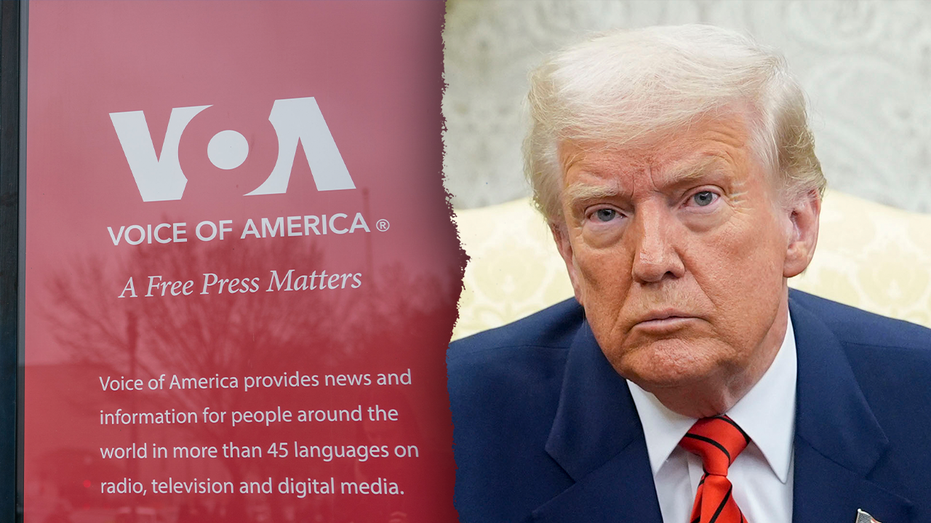Trump's War on Big Media and VOA: Bold Moves or Overreach?

Sarah Johnson
March 18, 2025
Brief
President Trump accuses major media outlets of illegal reporting, attacks DOJ under Biden, and dismantles Voice of America, sparking debate on press freedom and political motivations.
President Trump, no stranger to sparring with the media, once again made headlines with bold accusations and sweeping actions. In a fiery speech at the Justice Department, he claimed that major outlets like The New York Times and The Washington Post were engaged in "illegal" reporting. While he didn’t elaborate on what constituted the "illegal" part, the rhetoric was enough to stir both controversy and curiosity.
Trump, famous for his crusade against "fake news," has historically accused the press of bias against him, even going so far as to sue networks like ABC News (netting a $16 million settlement) and canceling subscriptions to outlets like Politico and the Times over alleged hostility.
In his Justice Department address, Trump veered from prepared remarks to lambaste lawyers and former prosecutors, accusing the department’s leadership under President Biden of trying to destroy him. He declared Biden the head of a "crime family"—a claim that, unsurprisingly, drew heavy media coverage.
Yet, here's where it gets intriguing: despite the gravity of Trump’s "illegal reporting" accusation, both the Times and the Post chose not to address it directly in their coverage. Was this an editorial decision to avoid engaging with what they might view as baseless claims, or could it be a sign of apprehension over potential legal retaliation from Trump? Either way, it raises the question: if these media giants won’t defend themselves, who will?
Adding fuel to the fire, Trump issued an executive order over the weekend that essentially dismantled the Voice of America (VOA) and Radio Free Europe, placing 1,300 staffers on indefinite leave. He justified the move by branding these outlets as part of the "radical left" and criticized VOA for being "the voice of the Soviet Union." His disdain for the government-funded broadcaster isn’t new, but the scale of this action is unprecedented.
Carla Babb, VOA’s Pentagon correspondent, expressed her dismay on social media, stating, "A silencing of VOA will be celebrated by communists, autocrats, and ayatollahs whose lies we shed light on." The sentiment underscores the agency’s historical role in countering propaganda since its inception during World War II.
While Trump’s critics argue that VOA’s mission remains vital, especially in an era of disinformation warfare, others point out that the world has changed since the days of huddling around radios in the 1940s. And with Trump’s well-documented rapport with figures like Vladimir Putin, questions about his motivations in reshaping media narratives are inevitable.
For now, the journalists and staffers affected by Trump’s executive order find themselves in limbo—sidelined and grappling with what it means to be labeled "radical left" by a sitting president.
Topics
Editor's Comments
Trump's "illegal reporting" accusation feels more like a rhetorical grenade than a serious legal claim. But let's talk about the real kicker here: why did the Times and Post sidestep it entirely? Fear or strategy, it’s a curious omission. Also, Trump’s move to gut VOA is bold, but calling it the "voice of the Soviet Union"—wow, that’s a throwback insult if I’ve ever heard one.
Like this article? Share it with your friends!
If you find this article interesting, feel free to share it with your friends!
Thank you for your support! Sharing is the greatest encouragement for us.



